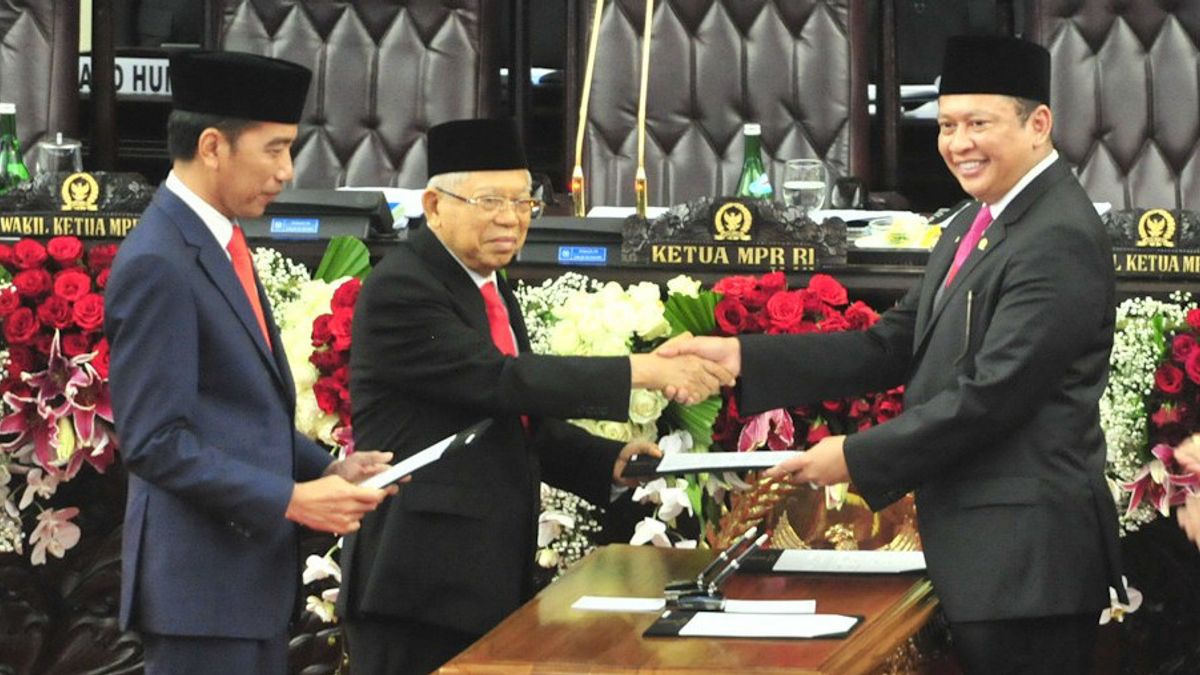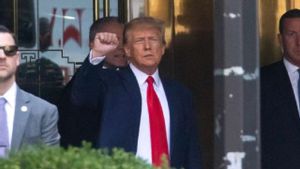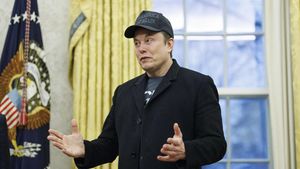JAKARTA - The government continues to build infrastructure in the midst of a crisis due to the COVID-19 pandemic. This is for realizing energy security.
Refocusing and reallocation of budgets with priority on handling the impact of COVID-19 were also carried out. However, an equitable energy policy remains a major concern.
President Joko Widodo (Jokowi) said that energy with justice must be realized. The goal is that every Indonesian citizen has equal access to energy. Today, oil and gas are no longer just commodities. However, oil and gas is the locomotive of development.
This paradigm shift has spurred the growth of domestic industries. Smelters were built and oil refineries were refurbished. Natural gas for domestic industry and utilization of new and renewable natural resources are optimized.
The government emphasizes that the big dream of justice in access to energy for the people is realized by making oil and gas not a luxury item for isolated and remote communities. Including, low-income people also get the same access.
"We keep losing, our products (are unable to compete), because of our expensive gas prices," said President Jokowi, quoted in the '2020 Annual Report', Tuesday, October 20.
President Jokowi took the risk of lowering natural gas prices in order to increase the global competitiveness of seven industry groups. The reduction in gas prices was carried out by reducing the government's share.
"Natural gas has a very large portion in the production cost structure. The decision to reduce gas prices directly affects the competitiveness of our industrial products in the world market," said the government.
The government explained that the current energy waste has reached 14.95 percent. Then, as many as 99.09 percent of households have electricity. Not only that, 174 gas stations have also imposed one fuel price.
In addition, the government is also accelerating the development of New and Renewable Energy (EBT) -based power plants, such as hydropower, solar power, and geothermal energy. The government also has a target that in 2025 the use of EBT could reach 23 percent. The figure is optimistic compared to this year's achievement of less than 15 percent.
The target is in accordance with the government's steps to determine five priority sectors to realize Indonesia's commitment to reduce carbon emissions in accordance with the 2015 Paris Agreement.
The five sectors are forestry and peatlands, agriculture, energy and transportation, industry and waste, and adaptation to the impacts of climate change.
More than 3.47 million hectares of peatland have been restored. The land cover in the water catchment area along the Citarum watershed has increased to 77.3 thousand hectares.
This year, Indonesia received a commitment from the international community of 12.01 million US dollars from the Green Climate Fund and 56 million US dollars from the Government of Norway.
"Energy in the future is clean energy. The trend of the automotive world has undergone major changes with the presence of electric vehicles. Indonesia does not want to be a mere consumer but is determined to be a major player. The ecosystem is being prepared," explained the government.
The English, Chinese, Japanese, Arabic, and French versions are automatically generated by the AI. So there may still be inaccuracies in translating, please always see Indonesian as our main language. (system supported by DigitalSiber.id)









